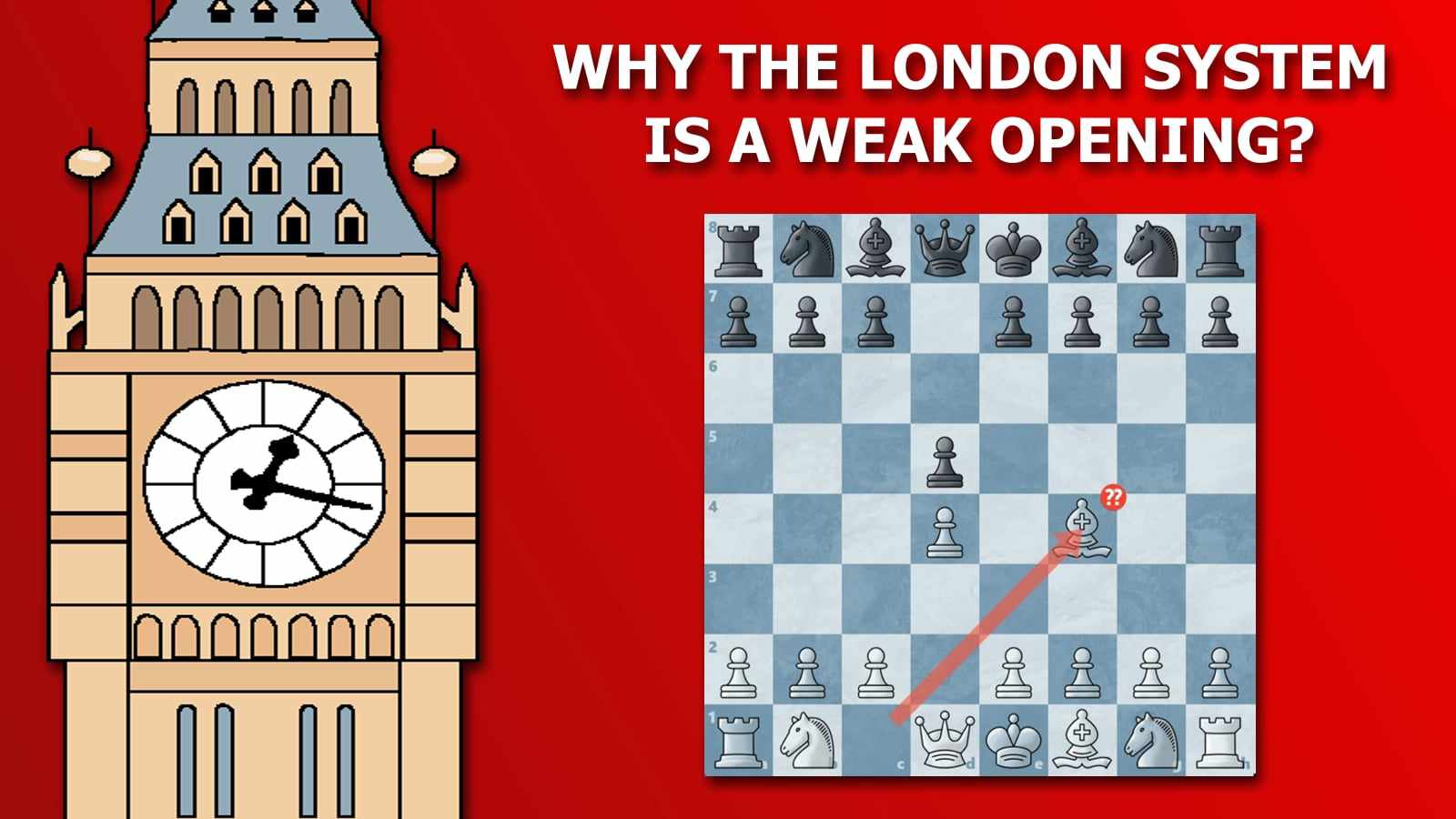
13.08.2024
Why the london system is a weak opening?
The London System is one of the more popular chess openings, particularly among amateurs and professionals. It's an opening where White develops their pieces in a fairly systematic way, regardless of Black's moves.
While the London System offers a solid structure and a stable position, it is often criticized, especially at higher levels of play. In this article, we will explore why the London System can be considered a weaker opening.
Lack of Ambition in Fighting for an Advantage
One of the main criticisms of the London System is that it doesn't strive to gain an advantage from the very beginning. While many classic openings, such as the Ruy Lopez or the King's Gambit, aim to dominate the center and create active play, the London System focuses on solidity and defense. This means that White often gives up the opportunity to fight for an advantage in exchange for a safe but often passive position.
Predictability
Due to its systematic nature, the London System is relatively easy for an opponent to predict. Black can prepare to play against this opening, knowing the basic structures and plans that White is likely to follow. As a result, experienced players can quickly find appropriate countermeasures to neutralize White's advantages.
Limited Offensive Opportunities
In the London System, White often limits their offensive opportunities. Although this opening is considered solid, it offers few chances for dynamic play. In many variations, Black has a relatively easy path to equality, and White may find themselves in a position where their pieces are less active. For players who prefer aggressive, active play, the London System may be too defensive and can lead to positions that are difficult to win.
Potential to Develop Bad Habits for Beginners
Beginning players who frequently use the London System might develop bad habits that could hinder their growth in the long run. One of these habits is playing exclusively defensively and without a clear plan. As mentioned earlier, White tends to make the same moves regardless of Black’s actions, often without much thought. This lack of strategic thinking can lead to a mindset where the player becomes overly reliant on a passive, reactive approach to the game. Over time, this can negatively impact the development of more advanced skills, such as planning, adapting to different positions, and seizing opportunities for active play. By not challenging themselves to consider the broader implications of each move or to strive for more dynamic and aggressive positions, beginners may find it difficult to progress beyond a certain level of play.
Conclusion
The London System, while popular and solid, has weaknesses that can make it less effective at higher levels of play. Its systematic nature, lack of aggressiveness, limited offensive opportunities, and the potential to instill bad habits in beginners may lead players seeking more dynamic and flexible play to avoid this opening. Nevertheless, for many amateurs and professionals, the London System remains an attractive option due to its simplicity and solidity. However, at higher levels of play, its drawbacks may outweigh its advantages, making it a less effective choice in an opening repertoire.